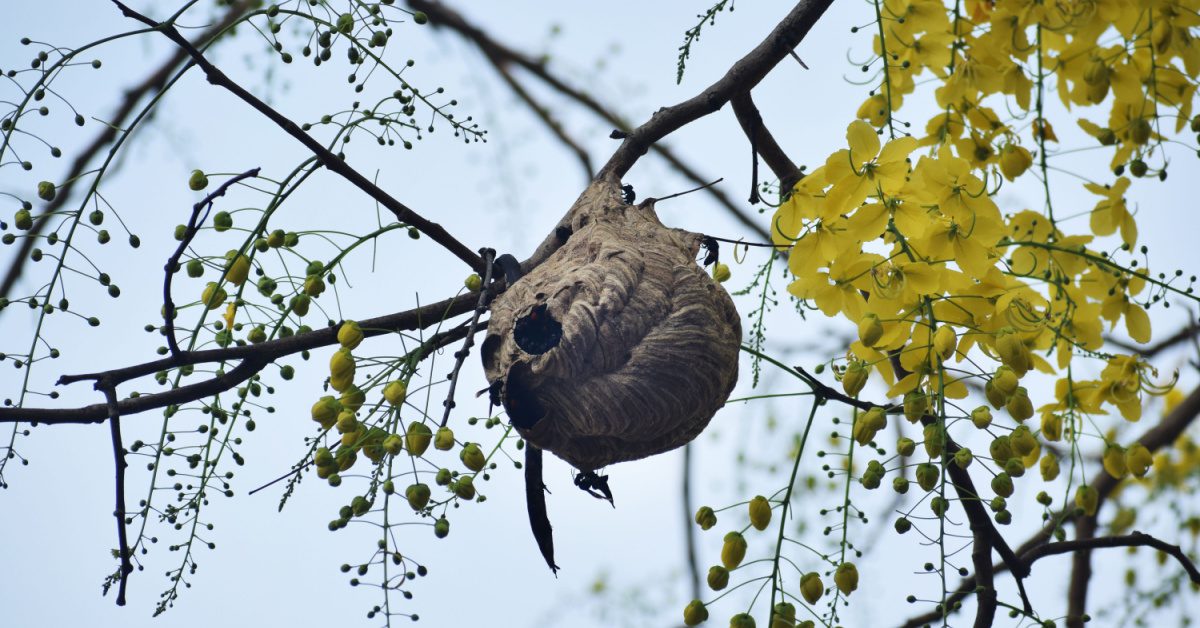Hornets, bees, and wasps have different winter survival strategies, and their behavior can vary depending on the species.
Here’s a general overview of what these insects typically do during winter.
Hornets
- Hornets are social insects that build nests, usually in protected locations. In the winter, most of the colony dies off, including the worker wasps and the old queen. Only newly mated queens survive the winter.
- The mated queens find a sheltered spot, such as in tree bark crevices or other protected areas, to hibernate until the following spring.
- Hornets typically do not reuse their old nests for hibernation.
Bees
- Honeybees are well-known for their overwintering strategy. They are the only social bees that survive the winter as a colony.
- Honeybee colonies cluster tightly inside their hives to conserve warmth. The bees form a “winter cluster” around the queen and generate heat by vibrating their wing muscles. This keeps the hive temperature warm enough for their survival.
- Solitary bees, like mason bees, do not overwinter as colonies. Instead, individual adult bees die off, and their offspring are in a pupal stage in protected nests (such as burrows in the ground) until they emerge in the spring.
Wasps
- Similar to hornets, many wasp colonies die off in the winter. Only the newly mated queens survive.
- These mated queens seek sheltered locations to hibernate, such as in leaf litter, woodpiles, or inside buildings.
- Unlike honeybees, wasps do not cluster together for warmth during the winter.
If you have a problem with bees, wasps, or hornets in or around your property, it’s essential to contact a professional pest control service like NJ Pest Control for safe and effective removal.
Attempting to remove nests or colonies without the necessary knowledge and equipment can be dangerous, as these insects can become aggressive when threatened.
Additionally, it’s important to avoid disturbing hibernating queens, as they play a vital role in continuing these species in the spring.

